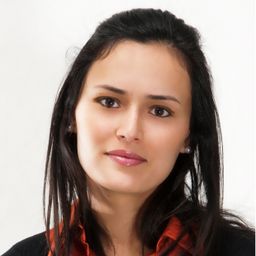Reinterpreting industrial heritage from a global perspective VII
Mon statut pour la session
Industrialization processes have been global from their very beginning. However, their interpretation still tends to be limited to specific locations or regions, and to specific time periods. Regularly, for example, it is stated that the industrial revolution started in Europe, from where it spread to the world, supposedly bringing technological and social progress to „less developed“ countries. Earlier periods of technology and knowledge transfer processes, that were already in place in the context of the global expansion of the European economic model from the Middle Ages, are only rarely taken into account. Crucially important historic transnational interconnectedness and actor networks as well as the fundamentally unfair power relations and unequal terms of trade also remain largely unconsidered up to date.
In our session we want to overcome Eurocentric interpretations of industrial heritage and industrial processes, and give voice to more perspectives and differing narratives on the topic. We invite colleagues from different disciplines and different world regions to share their views, in order to challenge and change the traditional viewpoints from a truly global perspective. We ask: Who benefits from industrialization, and who suffers its social and environmental consequences? And how does this reflect on the global and regional scales at the same time, affecting people and local environments in the global South and North alike?
We welcome conceptual contributions and case studies that deal with the implications of the traditional extraction model born in Europe and based on the exploitation of human and natural resources. Shifts within the global economy resulting in the consumption of ever-new territories, changing land and culturescapes, environmental disasters and access problems to primary sources such as minerals or water, are some of the aspects we would like to discuss. The struggle for control over territories and conflicting narratives related to that are also at the core, and we are most curious to hear about heritage construction processes that challenge the classic celebration story of progress and growth told by the traditional centres and dominant actors of industrialization.
With the ambition to decolonize industrial heritage interpretation and take on human and planetary responsibility, this session wants to explore conceptual and methodological approaches that enable us to understand that we are all part of the same global system, living and working in places that fulfil locally specific functions and roles that can change over time. Our aim is to open a debate on ideas and tools that we need when we seek to understand industrial processes as a global phenomenon of the past, present and future and make heritage construction processes more inclusive and outward-looking – thus, shaping our way into a global society, maybe also more just and more peaceful.
Two days after the session, we plan to resume and discuss our main findings and future perspectives in a Roundtable debate titled "Sharing industrial heritage glocally".
Sous sessions
Nowadays,our new way of life with all the new technologies is taking over heedless consumption and it aims to gradually banish all cultural heritage and artisanal know-how that is inherited from our ancestors. Each craftsman is considered as the witness to his time having lived and experienced it and every craftsman has ardently preserved the keys to the treasure of this heritage.Tunisia has witnessed the decline of the Chechia - hat industr...
The industrial decline in the western world in primarily the 1960s and -70s had resulted in a dramatic loss of small and medium-sized industries. The global restructuring of industrial production continued during 1980s to -90s with relocation of bigger production facilities in order to increase cost-effectiveness. In the quest for more low-cost production, never-ending industrial shutdowns follows in the footsteps of industrialisation, providing motivation and reason for industrial heritage p...
“To think critically is always to be hostile,” Hannah ArendtThe former Union Carbide factory at Bhopal, site of the chemical disaster, remains closed and contaminated since 1984. The old rendering plant is a visible reminder of the world’s worst disaster while the invisible, persistent chemicals in the soil and groundwater continue to occupy the city. The factory above and soil below connected through a toxic stream of leaching chemicals present a poetic afterlife of industri...






Discussion